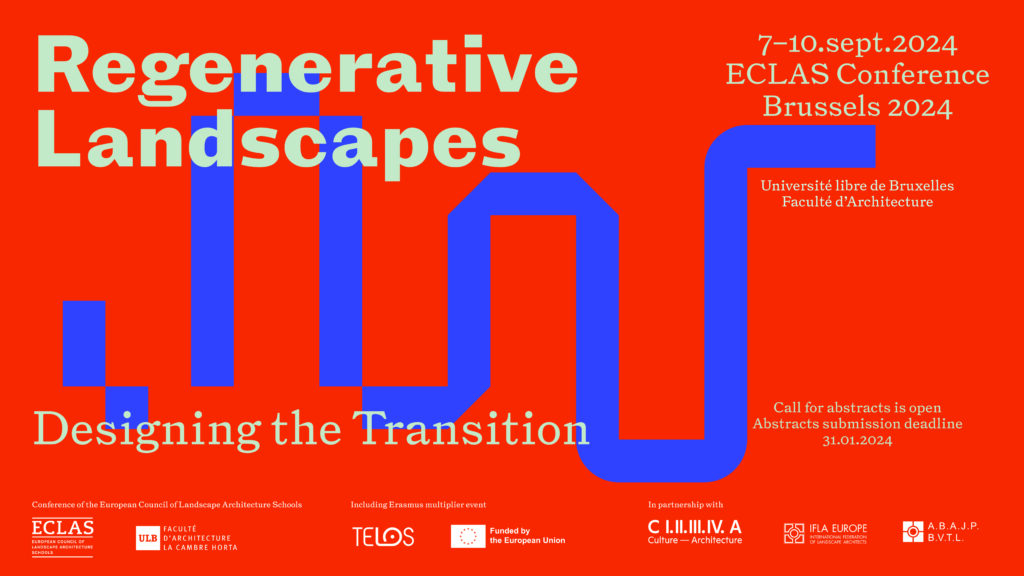
The INNO-land project
The INNO-land Erasmus+ Strategic Partnership aims to facilitate transparency and recognition of skills and qualifications of landscape architecture professionals in the European Union by developing a Common Training Framework for the Profession along with relevant tools to support its implementation.
The consortium consists of five higher education institutions covering geographical Europe from the North to the South – Finland, Lithuania, Hungary, Austria, Portugal – contributing with knowledge and experience on varying landscapes, study programmes, regulation of the profession, and European mobility experience. Additionally, two landscape architecture associations join the project to ensure access to the most prominent landscape architecture knowledge and education (LE:NOTRE Institute, the Netherlands), the target group of landscape architecture professionals, and access to the responsible bodies in the European Commission (IFLA-Europe, Belgium).
Specific objectives of the INNO-land project:
- implementing PQD requirements to foster automatic recognition of LA profession in Europe;
- establishing pan-European quality standards for LA study programmes and homogenizing landscape architecture education in Europe;
- developing an exemplary master study programme framework in line with the European Common Training Framework.
Landscape Architecture in Europe
Landscape Architecture aims to create save, sustainable and resilient environments that evolve and endure over time. Landscape architecture is perfectly positioned to respond to urgent issues of our time: e.g. mitigating climate change and contributing to the sustainability of both individual sites and cities as a whole. Higher education institutions play a major role in educating Landscape Architects who will take decisions about our future environment. Although European Union regulations (e.g. concerning environment, competition in internal EU market or professional qualifications) has impact on the professional work of landscape architects across Europe, there are still no standards regarding the content of the European higher education of Landscape Architects, inducing barriers for lifelong learning, recognition and mobility.
Common Training Framework
A Common Training Framework (CTF) defines knowledge, skills and competences necessary for the pursuit of a specific profession, defining what a person is able to know, to understand and to do. By harmonising the education and training requirements of landscape architecture professionals through the CTF, the EU will ensure free movement of professionals across the EU. The Directive 2013/55/EU of the European Parliament and of the Council on the recognition of professional qualifications and Regulation (PQD) emphasises, that Professional qualifications obtained under CTFs should automatically be recognised by the Member States.
The renewed EU agenda for HE, adopted by the Commission in May 2017, identifies enhanced mobility and cooperation in higher education among its key goals. The Paris Communiqué (2018), highlighting priority activities in this area for the coming years, calls for securing a sustainable future through higher educations. These ambitions are in line with the goal of the EU to create European Education Area by 2025, to promote mobility and academic recognition of qualifications for all EU citizens, leading to free movement of workers – one of the four fundamental freedoms of the Union.
Collaborative process by ECLAS and IFLA Europe for the Common Training Framework
The existing frameworks for landscape architecture education that are established by ECLAS and IFLA Europe form important parts of the Common Training Framework for Landscape Architecture. At the same time there is a need to update these to meet current and future challenges. For this the INNO-land project will engage a collaborative process with representatives of ECLAS and IFLA Europe to make sure that there is a solid base that is co-created by the relevant stakeholders.
The CTF will finally fulfil the requirement imposed by Art. 49a of the PQD and serve as the most important instrument for quality and competitiveness of higher educations with regard to the profession of landscape architects in the EU. INNO-land will also result in a developed basis for recognition of landscape architecture study programmes by IFLA Europe and ECLAS, leading to increased advanced learning and study opportunities for landscape architects. The fulfilment of an important precondition for automatic recognition of landscape architecture professional qualification based on Art. 49a of the PQD will contribute to increased mobility of high-level LA professionals across the EU; it will improve the quality and global competitiveness of the European Higher Education. It will also affect reaching Sustainable Development Goals and SDG Agenda 2030 as adopted by the UN (2015), the Paris Agreement on Climate Change (2016) and the European Green Deal (2019).
For more information about project please visit the project fact sheet.
For an overview of the history of education guidance in Europe, including the tuning process and other projects, you may read this article.
How to get involved?
If you have a specific question about the project, please contac us via office@ln-institute.org.
If you want to receive regular information and updates, please subscribe to the project mailing list.
